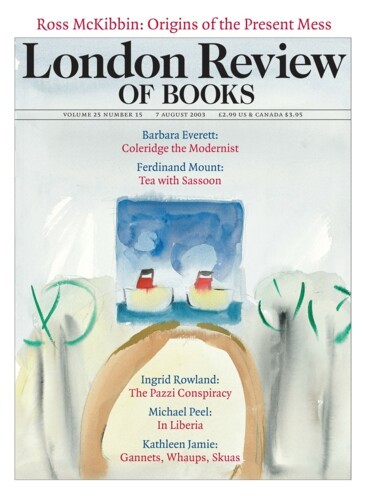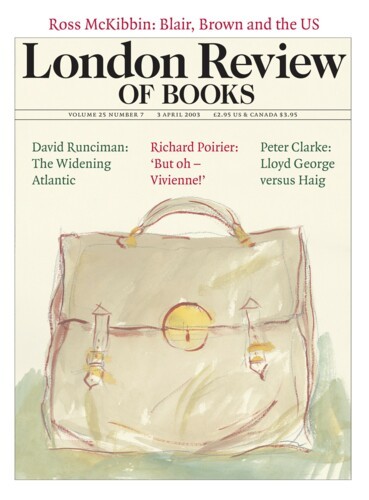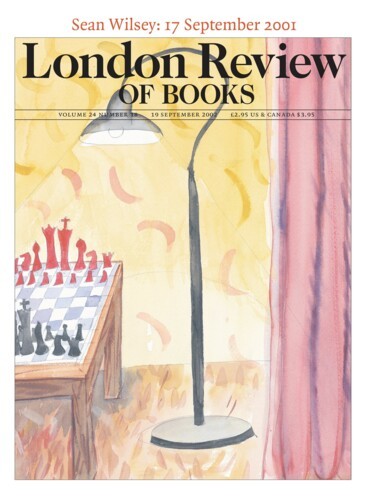How to put the politics back into Labour: Origins of the Present Mess
Ross McKibbin, 7 August 2003
“The extent of the continued underfunding of the public services, the Government’s confirmation that it wishes the House of Lords to be wholly nominated, something scarcely believable in a democratic society, the travails of the almost incoherent NHS legislation, the tacit admission that the mania for targets and league tables might be counterproductive, the Cabinet reshuffle that got badly out of hand, all these suggest a Government which does not need Iraq to be in a crisis. In these circumstances we would expect people to ask the Prime Minister to go. Should he resign? The obvious answer is yes: more than any other individual he is responsible for Labour finding itself in a political and intellectual dead-end. But this is to over-individualise what has happened.”





